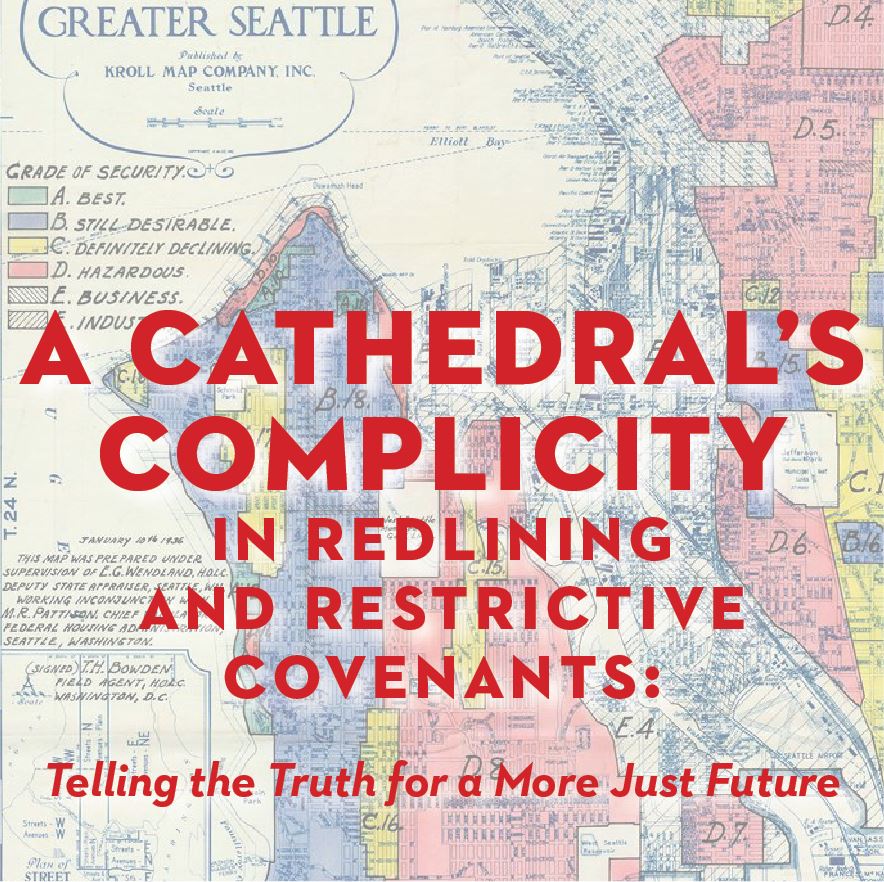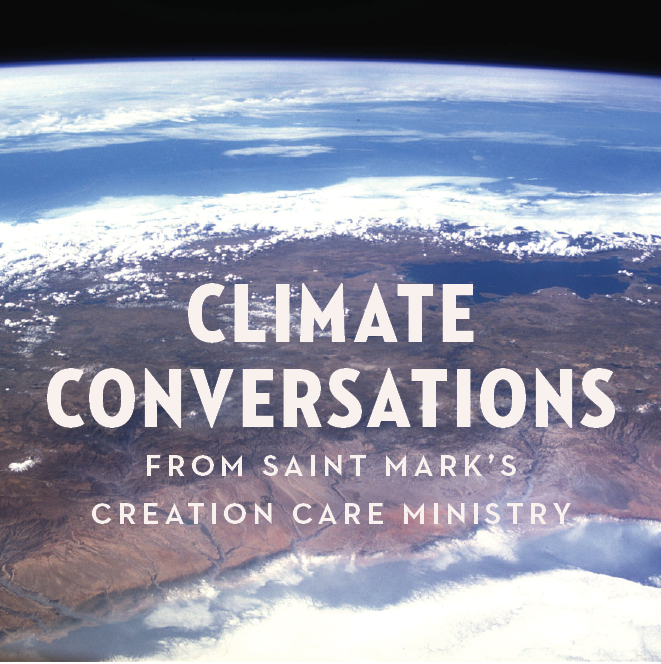A Cathedral’s Complicity in Redlining and Restrictive Covenants
on February 14, 2024
with No Comments

WEDNESDAY, MAY 22, 2024, 6:45–8:15 P.M., in person in Bloedel Hall or online via Zoom. Optional community dinner at 6 p.m. ($6/child; $8/adult; $25/max. family)
A Cathedral's Complicity in Redlining and Restrictive Covenants
As Saint Mark’s Cathedral considers redeveloping the St. Nicholas property for affordable housing, there is an opportunity to reflect on the history of North Capitol Hill in which racial redlining and restrictive covenants discriminated against people of color. Segregation suppressed homeownership and wealth building opportunities for people of color and has contributed to ongoing impact of housing inequities. Join to learn more about Seattle’s unique civil rights history and racial segregation and consider how church communities have responsibility to honestly face this and respond in just ways in our time.

SECOND THURSDAYS, 6:30–7:30 P.M., online via Zoom
Looking for practical ways to reduce your impact on the environment? Saint Mark’s Creation Care Ministry is hosting Climate Conversations about everyday things in our lives. These monthly conversations will be held on environmentally-friendly Zoom on the second Thursday evening of each month.
Register to participate using this link (same Zoom link each month).
Scroll down on this page to find materials, slides, and videos of past conversations in this series.
Farms across the state produce food for those of us who live here as well as for the nation and the world. Farmers are changing their practices to be more eco-friendly, which can save time, money, resources and the environment. We’ll compare traditional practices with modern ones, look at innovative solutions farmers use now to farm better, and consider organic farming. Along with learning about farming practices, we'll also explore how you can support farmers better through what you purchase, where, and how you purchase it.
While solar panels on roofs get the most attention for renewable energy, there are plenty of other options. Wind and geothermal, and other sustainable sources of energy are being used to provide the quickly-increasing amounts of electricity we need to power everything from lights and ovens to EVs and phones. We’ll discuss the variety of sources of renewable energy, how you can use them, and how to ensure a reliable power supply with storage, microgrids, or other innovative solutions.
While the temperatures aboveº in June of 2021 still rank as the hottest days in Seattle, summers before and after have been hotter too. When we want to stay cool, using air conditioners or buying new clothes and gadgets can exacerbate climate change. Join us to learn about trends in temperatures in Seattle summers, what we can do to reduce the impact of higher temperatures on our bodies and homes, and how to stay cool in eco-friendly ways. We’ll also discuss research on innovative solutions such as topping buildings with white roofs, adding green spaces or water to urban areas, and developing materials that make buildings and clothes better able to reflect thermal radiation that can keep us cool without compounding climate change.
Not long ago, droughts in Western Washington seemed unimaginable. Droughts now seem to happen on a regular basis, though, and water cutbacks have been required. We’ll share some of the science behind these shifts and the outlook for the future. We’ll then look at how we can prepare for drier times in our homes or gardens and how to participate in policy decisions that can help us cope.
The concrete, windows, lights, heat, furniture, fittings and other parts of our homes or office buildings cause more than 40% of global warming. How we manage these spaces matters. There are plenty of actions we can take and innovations we can use to reduce the climate impact. Learn what it is about your home or office that causes greenhouse gas emissions, then discuss what innovators are doing to come up with new solutions to reduce the climate impacts of buildings and what you can do at home and at work or even when you travel to minimize your impact.
Trees provide a multitude of benefits, including reducing climate change by absorbing carbon dioxide, protecting against floods, providing shade that cools urban areas and gardens as well as fields or streams, and enhancing neighborhood ambience. Whether you plant a single tree or help communities plant trees, your efforts can help to care for creation. We’ll discuss why and how to plant trees, what species to select for a warmer future, ways to get free or low-cost trees, and how to participate in local or city tree-planting initiatives.
Two of the top 10 things people can do to reverse global warming, Project Drawdown found, are reducing food waste and eating a plant-rich diet. Our response is often, ‘Who, me? I don’t waste and I eat right!’ Despite what we think, our diets may not be as climate-friendly as we think. We’ll dig into the details to find out why our food has so much impact and what we can do about it. You can experiment with new dishes, for example, to eat lower-impact meals and reduce waste. If you’re a meat-eater, you can have less impact by doing something other than giving up meat. Learn how to change the way you shop, prepare different meals and use all the food you buy so you can be eco-friendly.
Plastic is pervasive in our lives. Buying groceries in plastic bags or containers, gadgets and care parts made of plastic, plastic furniture and materials made of plastic and plastic bottles are just a few of the many places we see plastic. Reducing plastic production and usage could avoid 166 million metric tons of plastic by 2050 and avoid more than 5 gigatons of carbon dioxide emissions. We’ll start by considering all the places we use plastic, then discuss how to avoid it. We’ll also look at alternatives to plastic, how we can influence others to use less plastic, and new solutions that can replace plastic. Learn how to use less plastic in your everyday life.